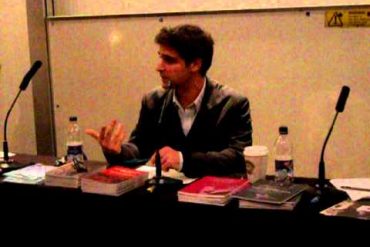1) The FDD reports on ‘The Consolidation of the Turkey-Qatar Axis’.
“On June 5, 2017, Saudi Arabia, Bahrain, Egypt, and the United Arab Emirates (UAE) severed diplomatic ties with Qatar, enacting a land, sea, and air blockade. Qatar’s neighbors charged the country with supporting terrorists, collaborating with Iran, and sowing the seeds of chaos around the Middle East. The sudden move closed Qatar’s only road link to foreign markets, through which it received nearly 40 percent of its food requirements. Qatari residents panicked, picking clean supermarket shelves. But the panic subsided less than 48 hours later, as Turkey began sending cargo planes with food and other goods.
Turkey’s assistance was not simply a humanitarian gesture. Rather, it was the most visible sign of Ankara and Doha’s strategic convergence. This was also evident when Qatar was one of the few actors, alongside Hamas and Pakistan, that supported Turkey’s cross-border operation into northeast Syria in October 2019.”
2) The ITIC analyses ‘Hezbollah’s Position on the Wave of Protests in Lebanon’.
“When the wave of protests began in Lebanon, Hezbollah avoided criticizing them, possibly assuming they would wane of their own accord, not expecting them to pose a significant threat. However, as the demonstrations continued, the more they posed a challenge to the Lebanese government, the more Hezbollah openly came out against them. Hezbollah was concerned that they might spin out of control and threaten its political power, and possibly even erode the foundations of Lebanon’s sectarian regime, of which Hezbollah is an integral part.
Hezbollah’s propaganda accused the demonstrators of causing chaos and possibly leading the country to a civil war. Hezbollah supporters threatened the “thugs” and “terrorists” who blocked the roads leading to Beirut’s southern suburb (the Dahia), and the highway linking Beirut to the south, thereby imposing a “siege” on the [Shi’ite] population living there. Hezbollah also initiated a campaign claiming that the United States and its allies were behind the protest demonstrations, which automatically delegitimized them. On the ground there were instances in which road-blocking demonstrators were attacked by Hezbollah (and Amal) supporters, but no prolonged frontal confrontation developed.”
3) At the Times of Israel, David Horovitz ponders ‘Why Israel’s third elections might not be such a disaster, after all’.
“Elections are designed to be decisive. We don’t have time to run our democracies ourselves, so we have systems designed to install a new batch of competent people every few years to do so on our behalf. Clearly, that hasn’t been working for us in the past year — even though, in Israel, we have an electoral system that so purely and accurately represents the will of the voter. It’s not like America, where only a few states are really in play. It’s not like in Britain, where parties can win millions of votes and get no seats in parliament. It’s a system where every vote counts. Undiluted proportional representation.
But rather than look at round three of elections as proof of that system’s failure and paralysis, perhaps, in its purity, it is enabling the electorate to work through the hugely sensitive decision of who should lead this country, and thus how and where it should be led, a little more protractedly than is the norm. Perhaps our system is actually working for us rather than against us.”
4) The Tel Aviv Review of Books carries ‘Our Men in Al Sham: An Interview with Seth Frantzman and Jonathan Spyer’.
“The Americans haven’t totally left. They have no real strategy, but as long as they’re there, the Kurds in Syria will be happy to work with them, because the alternative is not working with them. So even if they’re furious about what’s happened, they’re going to carry on working with the Americans.
As for the future, it’s fascinating. Contrary to the impression we had, that the regime is rolling in and it’s all over, on the ground remarkably little has changed. The Kurdish internal security forces are still responsible for security in all the urban areas. Right now a journalist can go through the Kurdish-controlled border crossing with Iraq at Faysh Khabur down to Qamishli on the Turkish border without ever coming across a regime roadblock or even seeing a regime soldier. That’s because the regime is decrepit. I spent some time with the regime forces on the border in a place called Tell Tamer, and they are in lousy shape. I personally witnessed a regime medical officer petitioning an American medical NGO for medical equipment: “I don’t have any aspirin for my boys,” it was like that, you know. People tell me that they’ve seen regime soldiers asking SDF guys for food. The regime has won the war because of Russia and Iran, not because of any strength of its own. And that has implications for them taking control of the whole area.”




